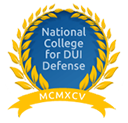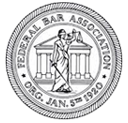

DUI Checkpoints and Roadblocks
Law enforcement agencies throughout the country are adamant about putting a stop to drinking and driving. Agencies use a variety of tactics to secure DUI arrests, including sobriety checkpoints and roadblocks. These tools are highly controversial, and some drivers disagree with them.
However, these stops can lead to DUI arrests and other alcohol-related charges. It is important to know your rights at a checkpoint and what your options are if you are facing charges as a result of a roadblock. A Cincinnati criminal defense attorney can help you examine your case to ensure your rights are represented.
Ohio DUI Checkpoint Defense Attorney
Any time you are arrested and charged with a criminal offense, it is important to know if it was done so legally. DUI checkpoints are controversial, and it is important to ensure all required steps have been taken to ensure your rights are represented. If you have been arrested as a result of a DUI checkpoint or roadblock, contact an experienced Cincinnati DUI defense lawyer at Joslyn Law Firm.
The attorneys at Joslyn Law Firm have years of experience fighting for the rights of drivers facing DUI charges. They understand the battle you are facing, and they will work to get a positive outcome in your case. Joslyn Law Firm represents clients throughout the Greater Cincinnati area. Call (513) 399-6289 for a free consultation.
Information About DUI Checkpoints in Ohio
What are DUI Checkpoints?
DUI checkpoints are police-planned stops in which a law enforcement agency will set up traffic cones and barricades to stop vehicles to check for suspected drunk drivers. Vehicles are stopped in a specific sequence, such as every other vehicle or every third or fourth vehicle. The agency must establish this sequence before starting the checkpoint.
Officers check drivers for signs of drug or alcohol impairment and intoxication, such as a strong smell of alcohol or slurred speech, before actually stopping a vehicle. Police must have a reason to believe the driver who was stopped at a checkpoint has been drinking before a breath test can be conducted.
In many cases, an officer will ask if he or she has been drinking. If the drivers indicates he or she has been drinking, an officer can ask the vehicle to pull over and ask he or she submit to a chemical test. Additionally, if the officer has other reason to suspect a driver is under the influence, a breath test could be administered.
Are DUI Checkpoints Legal in Ohio?
Drivers often wonder if DUI checkpoints and roadblocks are legal. The question of whether or not law enforcement officers have probable cause for the stop often is raised. However, these checkpoints are considered legal in 39 states, including Ohio, and valid DUI arrests can result from them.
In Michigan v. Sitz, 496 U.S. 444, the U.S. Supreme Court ruled the checkpoints are valid for law enforcement officers throughout the country because the dangers from drunk driving outweigh the "degree of intrusion" involved in sobriety checkpoints. The ruling said these checkpoints are an exception to the search and seizure provisions of the U.S. Constitution.
There are, however, requirements police officers and those administering the checkpoints must follow, such as establishing a pattern in which to stop vehicles. The checkpoints also must be publicized before they are held. This mean the notices often are printed in local newspapers and announced on local radio stations nearly a week in advance.
The advanced planning of sobriety checkpoints is crucial to ensuring they are legally done. Failure to do so could be used as evidence that the checkpoint techniques were not legal, thus the stop and all of the evidence was not legitimate. This is one way in which DUI charges can be reduced or dropped after a DUI checkpoint stop. An attorney can examine your case to discover if this applies to you.
What to do at DUI Checkpoints
When drivers are stopped at DUI checkpoints, it is important to be cooperative. People throughout the country disagree with the practice, saying it is an intrusion and a violation of citizens' rights. However, disagreeing with law enforcement will not make the situation easier.
When approaching a checkpoint, drivers should roll down their car window to speak to the officers. From there, they likely will ask questions about if you have consumed alcohol or drugs. If there is no suspicion of the driver being under the influence, the stop likely will last about 20 seconds.
If a cop suspects a driver is intoxicated, he or she will be asked to pull over out of the way of traffic. Law enforcement officers then could ask the driver to submit to a chemical test of his or her blood, urine or breath. The officer also could have the driver complete field sobriety exercises.
Drivers have the right to refuse the chemical test and field sobriety exercises. This does not mean an officer cannot arrest you and there will not be consequences. In fact, refusing a chemical test for the first time could mean a one-year driver's license suspension.
Finding the Best DUI Defense Lawyer in Cincinnati
If you have been arrested as a result of a DUI checkpoint, contact a skilled DUI defense attorney at Joslyn Law Firm. Our team can help you fight the charges and get a positive outcome in your case. Call (513) 399-6289 to schedule a free consultation to discuss the facts of your case today.























